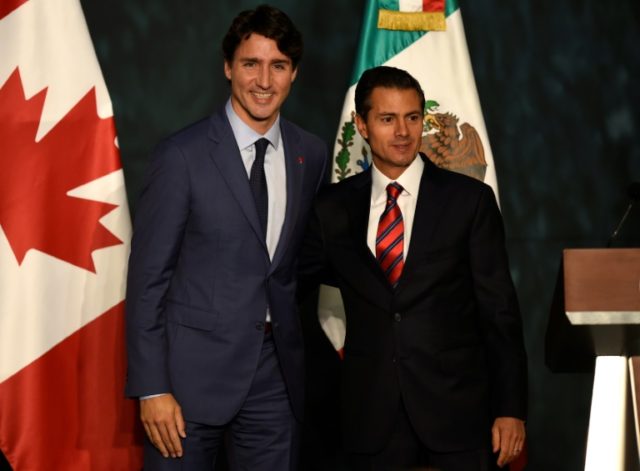The Trump administration’s top trade official severely criticized Canada and Mexico’s trade negotiators Tuesday, saying that the two countries were underming its attempt to revise NAFTA rather than end the 23-year-old trade agreement.
“Frankly, I am surprised and disappointed by the resistance to change by our negotiating partners,” U.S. Trade Representative Robert Lighthizer said during a heated press conference at the conclusion of the fourth and latest round of NAFTA negotiations.
Canada and Mexico have locked arms in opposition to a U.S. proposal that the trade agreement should come up for renewal every five years, a change meant to assure that the agreement stay up-to-date as the economies of the three countries change over time. Both counties also oppose U.S. proposals designed to create jobs for American auto manufacturers by putting more stringent limits on how much of a car can be made outside of North America to qualify for immunity to import taxes in the three NAFTA countries.
The Trump administration has proposed raising the threshold to 85 percent from the current 62 percent. Under the current rules, nearly a third of the parts of cars can be built outside of Canada, Mexico, or the U.S. and still qualify for import tax immunity under NAFTA. Critics say this has allowed manufacturers to use NAFTA to get around U.S. import taxes while doing a substantial amount of manufacturing in China and other countries outside North America.
The U.S. proposal would also require that cars sold into the United States be 50 percent manufactured here in order to qualify for special NAFTA status.
“We have seen no indication that our partners are willing to accept any change that will result in a rebalacing and a reduction in these huge trade deficits,” Lighthizer said. “Now I understand that after many years of one-sided benefits, their companies have become reliant on special preferences and not just comparative advantage. Countries are reluctant to give up unfair advantages.”
Tuesday marked the end of the fourth round of negotiations, which have increasingly become acrimonious, according to people familiar with the matter. Officials from the three countries had hoped to conclude the negotiations by year’s end but now expect the talks to continue into 2018.

COMMENTS
Please let us know if you're having issues with commenting.